Posted on January 10th, 2019 by Mary Lord
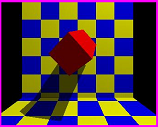 Spatial visualization – the ability to imagine objects from different angles – is a key STEM problem-solving skill that varies widely by gender, race, and cultural background. Yet it’s rarely taught. The University of Colorado-Boulder’s College of Engineering developed an inexpensive training program that closed STEM performance gaps so well it’s required of all incoming engineering students. The curriculum is now available for free online so any school can advance STEM equity.
Spatial visualization – the ability to imagine objects from different angles – is a key STEM problem-solving skill that varies widely by gender, race, and cultural background. Yet it’s rarely taught. The University of Colorado-Boulder’s College of Engineering developed an inexpensive training program that closed STEM performance gaps so well it’s required of all incoming engineering students. The curriculum is now available for free online so any school can advance STEM equity.
Read More
Filed under: K-12 Outreach Programs, Special Features, Web Resources | Comments Off on STEM Equity? Teach This Key Skill
Tags: 3-D modeling, ASEE Prism magazine, Curriculum, Design, Engineering Plus, Internet Resources, Jacob Segil, Outreach, Research on Learning, Resources for Teachers, spatial visualization training workshops, STEM education, STEM equity, Technology for Learning, University of Colorado Boulder College of Engineering, Web Resources
Posted on November 13th, 2017 by Mary Lord
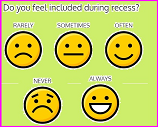 Schools around the country have come to view social and emotional well-being as key to learning. They might want to check with Gina Greco, a fourth grade teacher in Auburn, Wash., who worked with local college students to develop a web-based app that asks students how they feel – and flags those who might need intervention.
Schools around the country have come to view social and emotional well-being as key to learning. They might want to check with Gina Greco, a fourth grade teacher in Auburn, Wash., who worked with local college students to develop a web-based app that asks students how they feel – and flags those who might need intervention.
Read More
Filed under: K-12 Education News, Special Features | 2 Comments »
Tags: agile development, app design, coding, Computer Science, Gina Greco, Green River College, social emotional learning, software development, software engineering, STEM education, Technology for Learning, technology teacher, Web Resources
Posted on November 27th, 2013 by Mary Lord
 Computing is all around us, from movies to manufacturing to marketing. But only a handful of Americans learn how computers work or can create software, websites, or applications. Computer Science Education Week (December 9-15, 2013) aims to change that equation. This year’s effort: an Hour of Code that organizers hope will engage 10 million students.
Computing is all around us, from movies to manufacturing to marketing. But only a handful of Americans learn how computers work or can create software, websites, or applications. Computer Science Education Week (December 9-15, 2013) aims to change that equation. This year’s effort: an Hour of Code that organizers hope will engage 10 million students.
Read More
Filed under: For Teachers, Grades 6-8, Grades 9-12, Grades K-5, Special Features | Comments Off on Computer Science Education Week 2013
Tags: code writing, code.org, Computer Engineering, Computer Science, computer science education week, Grace Hopper, Public Policy, STEM education, Technology for Learning
Posted on August 29th, 2013 by Mary Lord
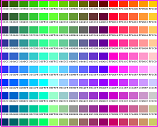 Computer science has the highest pay for new college graduates, twice the national average job growth of more than double the national average, and applications that stretch from rock music to medicine. Yet 9 in 10 schools don’t teach programming. Code.org hopes to change that with a host of free resources to get kids as young as four creating websites and apps.
Computer science has the highest pay for new college graduates, twice the national average job growth of more than double the national average, and applications that stretch from rock music to medicine. Yet 9 in 10 schools don’t teach programming. Code.org hopes to change that with a host of free resources to get kids as young as four creating websites and apps.
The answer is computer programming, and advocates from Microsoft founder Bill Gates to former president Bill Clinton are pushing to include it in the K-12 curriculum.
Far from being complicated algorithms only a geek could master, code writing can be learned by just about anyone — even four-year-olds. Code.org has compiled a host of websites, courses, and other free resources to help students hone programming skills from building websites to creating phone apps. There also are tips for using code writing and programming projects and activities in math or science classes to cover content standards.
Read More
Filed under: For Teachers, Grades 6-8, Grades 6-8, Grades 9-12, Grades 9-12, Grades K-5, Grades K-5, K-12 Outreach Programs, Lesson Plans, Special Features, Web Resources | Comments Off on Code Calling
Tags: code writing, code.org, Computer Programming, Computer Science, Curriculum, Internet Resources, Lesson Plan, Resources for Teachers, STEM education, Teacher Resources, Technology for Learning, Website
Posted on June 19th, 2013 by Mary Lord
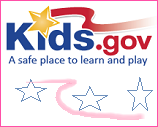 Students can forget what they learned over the summer. To help stave off the slide, the U.S. government’s Kids.gov offers activities for kindergarteners through 8th graders, as well as resources for parents and teachers. Join the live Twitter chat June 20, 2013 to discuss fun and educational activities to do with kids this summer.
Students can forget what they learned over the summer. To help stave off the slide, the U.S. government’s Kids.gov offers activities for kindergarteners through 8th graders, as well as resources for parents and teachers. Join the live Twitter chat June 20, 2013 to discuss fun and educational activities to do with kids this summer.
Read More
Filed under: Grades 6-8, Grades K-5, K-12 Outreach Programs, Web Resources | Comments Off on Summer Learning @ Kids.gov
Tags: Internet Resources, Resources for Teachers, Technology for Learning
Posted on May 4th, 2012 by Mary Lord
 Khan Academy’s YouTube math tutorials may not be Academy Award quality, but their academic merit is clear from their popularity with students and teachers. Now, the Massachusetts Institute of Technology and TED are adding to the K-12 STEM video playlist.
Khan Academy’s YouTube math tutorials may not be Academy Award quality, but their academic merit is clear from their popularity with students and teachers. Now, the Massachusetts Institute of Technology and TED are adding to the K-12 STEM video playlist.
Read More
Filed under: Web Resources | Comments Off on New MIT & TED-Ed STEM Videos
Tags: Khan Academy, MIT, online STEM learning, Resources for Teachers, STEM education, STEM videos, Teacher Resources, Technology for Learning, TED, Ted-Ed, video, Web Resources, YouTube
Posted on January 9th, 2012 by Jaimie Schock
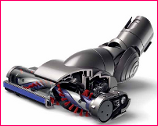 The James Dyson Foundation offers several educational resources online and through loans to teachers. Among them, the Engineering Box, available to Chicago-area schools, is designed to teach reverse engineering, can be borrowed for four weeks at a time for free. The Box’s items, which include a Dyson DC26 vacuum cleaner, are used in combination with the Foundation’s Teacher’s Pack and Product Analysis resources.
The James Dyson Foundation offers several educational resources online and through loans to teachers. Among them, the Engineering Box, available to Chicago-area schools, is designed to teach reverse engineering, can be borrowed for four weeks at a time for free. The Box’s items, which include a Dyson DC26 vacuum cleaner, are used in combination with the Foundation’s Teacher’s Pack and Product Analysis resources.
Read More
Filed under: Web Resources | Comments Off on Resources: Dyson Educational Materials
Tags: Corporations, Internet Resources, Reverse Engineering, Teacher Resources, Technology for Learning, Web Resources
Posted on January 9th, 2012 by Jaimie Schock
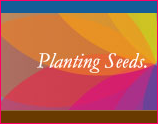 The Blended Learning Open Source Science or Math Studies (BLOSSOMS) initiative, a new project from the Massachusetts Institute of Technology, creates videos with a STEM focus for use in high school classrooms. The program features a library with around 50 math and science lessons, available free for download or as streaming video, and also by request as DVDs and videotapes.
The Blended Learning Open Source Science or Math Studies (BLOSSOMS) initiative, a new project from the Massachusetts Institute of Technology, creates videos with a STEM focus for use in high school classrooms. The program features a library with around 50 math and science lessons, available free for download or as streaming video, and also by request as DVDs and videotapes.
Read More
Filed under: Web Resources | Comments Off on Resource: BLOSSOMS from MIT
Tags: Curriculum, high school, Higher Education, International K-12 Education, Internet Resources, MIT, Science Curriculum, Teacher Resources, Technology for Learning, Videos, Web Resources
Posted on December 4th, 2011 by Jaimie Schock
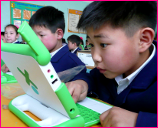 The One Laptop Per Child (OLPC) program aims to provide each child with a rugged, low-cost, low-power, connected laptop. To this end, hardware, content, and software has been designed for collaborative, fun, and self-empowered learning.
The One Laptop Per Child (OLPC) program aims to provide each child with a rugged, low-cost, low-power, connected laptop. To this end, hardware, content, and software has been designed for collaborative, fun, and self-empowered learning.
Read More
Filed under: For Teachers, Grades 6-8, Grades 9-12, Grades K-5, K-12 Outreach Programs | Comments Off on Program: One Laptop Per Child
Tags: education programs, International K-12 Education, Organizations, Outreach, Outreach for Schools, Technology, Technology for Learning
 Spatial visualization – the ability to imagine objects from different angles – is a key STEM problem-solving skill that varies widely by gender, race, and cultural background. Yet it’s rarely taught. The University of Colorado-Boulder’s College of Engineering developed an inexpensive training program that closed STEM performance gaps so well it’s required of all incoming engineering students. The curriculum is now available for free online so any school can advance STEM equity.
Spatial visualization – the ability to imagine objects from different angles – is a key STEM problem-solving skill that varies widely by gender, race, and cultural background. Yet it’s rarely taught. The University of Colorado-Boulder’s College of Engineering developed an inexpensive training program that closed STEM performance gaps so well it’s required of all incoming engineering students. The curriculum is now available for free online so any school can advance STEM equity. 








 Schools around the country have come to view social and emotional well-being as key to learning. They might want to check with Gina Greco, a fourth grade teacher in Auburn, Wash., who worked with local college students to develop a web-based app that asks students how they feel – and flags those who might need intervention.
Schools around the country have come to view social and emotional well-being as key to learning. They might want to check with Gina Greco, a fourth grade teacher in Auburn, Wash., who worked with local college students to develop a web-based app that asks students how they feel – and flags those who might need intervention.  Computing is all around us, from movies to manufacturing to marketing. But only a handful of Americans learn how computers work or can create software, websites, or applications. Computer Science Education Week (December 9-15, 2013) aims to change that equation. This year’s effort: an Hour of Code that organizers hope will engage 10 million students.
Computing is all around us, from movies to manufacturing to marketing. But only a handful of Americans learn how computers work or can create software, websites, or applications. Computer Science Education Week (December 9-15, 2013) aims to change that equation. This year’s effort: an Hour of Code that organizers hope will engage 10 million students. Computer science has the highest pay for new college graduates, twice the national average job growth of more than double the national average, and applications that stretch from rock music to medicine. Yet 9 in 10 schools don’t teach programming. Code.org hopes to change that with a host of free resources to get kids as young as four creating websites and apps.
Computer science has the highest pay for new college graduates, twice the national average job growth of more than double the national average, and applications that stretch from rock music to medicine. Yet 9 in 10 schools don’t teach programming. Code.org hopes to change that with a host of free resources to get kids as young as four creating websites and apps. Students can forget what they learned over the summer. To help stave off the slide, the U.S. government’s Kids.gov offers activities for kindergarteners through 8th graders, as well as resources for parents and teachers. Join the live Twitter chat June 20, 2013 to discuss fun and educational activities to do with kids this summer.
Students can forget what they learned over the summer. To help stave off the slide, the U.S. government’s Kids.gov offers activities for kindergarteners through 8th graders, as well as resources for parents and teachers. Join the live Twitter chat June 20, 2013 to discuss fun and educational activities to do with kids this summer. Khan Academy’s YouTube math tutorials may not be Academy Award quality, but their academic merit is clear from their popularity with students and teachers. Now, the Massachusetts Institute of Technology and TED are adding to the K-12 STEM video playlist.
Khan Academy’s YouTube math tutorials may not be Academy Award quality, but their academic merit is clear from their popularity with students and teachers. Now, the Massachusetts Institute of Technology and TED are adding to the K-12 STEM video playlist. The James Dyson Foundation offers several educational resources online and through loans to teachers. Among them, the Engineering Box, available to Chicago-area schools, is designed to teach reverse engineering, can be borrowed for four weeks at a time for free. The Box’s items, which include a Dyson DC26 vacuum cleaner, are used in combination with the Foundation’s Teacher’s Pack and Product Analysis resources.
The James Dyson Foundation offers several educational resources online and through loans to teachers. Among them, the Engineering Box, available to Chicago-area schools, is designed to teach reverse engineering, can be borrowed for four weeks at a time for free. The Box’s items, which include a Dyson DC26 vacuum cleaner, are used in combination with the Foundation’s Teacher’s Pack and Product Analysis resources. The Blended Learning Open Source Science or Math Studies (BLOSSOMS) initiative, a new project from the Massachusetts Institute of Technology, creates videos with a STEM focus for use in high school classrooms. The program features a library with around 50 math and science lessons, available free for download or as streaming video, and also by request as DVDs and videotapes.
The Blended Learning Open Source Science or Math Studies (BLOSSOMS) initiative, a new project from the Massachusetts Institute of Technology, creates videos with a STEM focus for use in high school classrooms. The program features a library with around 50 math and science lessons, available free for download or as streaming video, and also by request as DVDs and videotapes. The One Laptop Per Child (OLPC) program aims to provide each child with a rugged, low-cost, low-power, connected laptop. To this end, hardware, content, and software has been designed for collaborative, fun, and self-empowered learning.
The One Laptop Per Child (OLPC) program aims to provide each child with a rugged, low-cost, low-power, connected laptop. To this end, hardware, content, and software has been designed for collaborative, fun, and self-empowered learning.